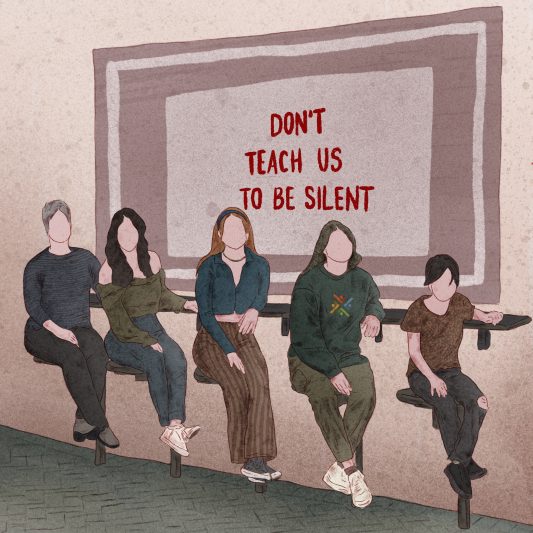Over two million refugees have left Ukraine since Russia’s invasion, with the UN High Commissioner for Refugees calling this the fastest-growing refugee crisis in Europe since World War Two. While hosting countries in Europe are welcoming those who flee the war, the way it has been reported is rather problematic.
Media Diversity Institute has documented and highlighted several of these instances. Dina Newman’s article on racist incidents in some western media coverage of the conflict collected such instances and looked at online reactions:
“Are we betraying Ukraine or playing into the hands of the Russian propaganda when we call out such instances of racism in the Western media? No, we don’t.’It’s possible to stand with Ukraine AND investigate allegations of poor treatment of some non-white refugees/students AND condemn racism in some news coverage. These are not mutually exclusive positions. Nor is it irresponsible to air those concerns.’, tweeted Sangita Myska, senior correspondent with the BBC.”
While western media are still trying to find ways to report on refugees following ethical standards of journalism, journalists who work in Russia face new draconian laws when they attempt to report on the conflict. As Dina Newman writes for Media Diversity Institute, some of them find new and creative ways to express themselves:
“Being unable to report was heart-breaking news to many foreign journalists who dedicated their careers to Russia coverage. Unable to express himself in words, the BBC correspondent Steve Rosenberg wrote a piece of music called “In Isolation” and posted his recording on twitter”.
At the same time, analysts have accused pundits and conflict commentators from Western states of ‘westplaining’ the conflict. Media Diversity Institute will keep following the developments in Ukraine. We will keep working on promoting diversity in the media and we will keep you informed about the latest developments in the field.
International Women’s Day
March 8 marks International Women’s Day globally. From the coverage of the women’s march in Pakistan to the portrayal of women in the Italian media, Media Diversity Institute will continue highlighting the gender disparities in the media around the world, as we do – before, after and on March 8.
Our projects played an integral role in highlighting the day:
Get The Trolls Out! took a look at female Members of Parliament in the UK from diverse faith backgrounds. You can read the thread on Twitter here.
Our partners at Get The Trolls Out: Sri Lanka, Hashtag Generation, published an article which explores gendered hate speech against women politicians as part of the project. The article is based on social media monitoring of Sri Lankan accounts. You can read it here.
Reporting Diversity Network 2.0 created a social media campaign in order to spotlight hate speech and violence that women in the Western Balkans face daily:

Our News
Media Diversity Institute is a proud member of the implementing consortium of Global Exchange on Religion in Society (GERIS) network. GERIS has shared several videos of one of the network’s exchange visits, this one to Atlanta in the USA, which focused on the theme ‘Being a Minority’. You can view the videos in this Twitter thread.
Our project Get The Trolls Out! which covers the EU, will host an event in partnership with Are We Europe and Dare to Be Grey on 17 March at 19:30-21:00 CET in Brussels. You can view the details and grab your tickets here.
Our project Get The Trolls Out Sri Lanka had a workshop for CSOs on campaigning and countering hate speech online. The workshop, led by MDI’s Dasha Ilic, gave participants a core and in-depth understanding of media and information literacy principles and skills.
MDI at Perugia Journalism Festival
We’re so exited to be part of this year’s Perugia Journalism Festival on 8 April at 15:30 CET. Hossein Derakhshan, Sharon Moshavi, Peter Pomerantsev and our Executive Director Milica Pesic will discuss the media’s capacity to provide trustworthy information. For more details on the panel click here.
Click the button below to read the full newsletter
Click the button below to subscribe
Errarum: In a previous version of this newsletter, Global Exchange on Religion in Society (GERIS) was identified with incorrect spelling.


